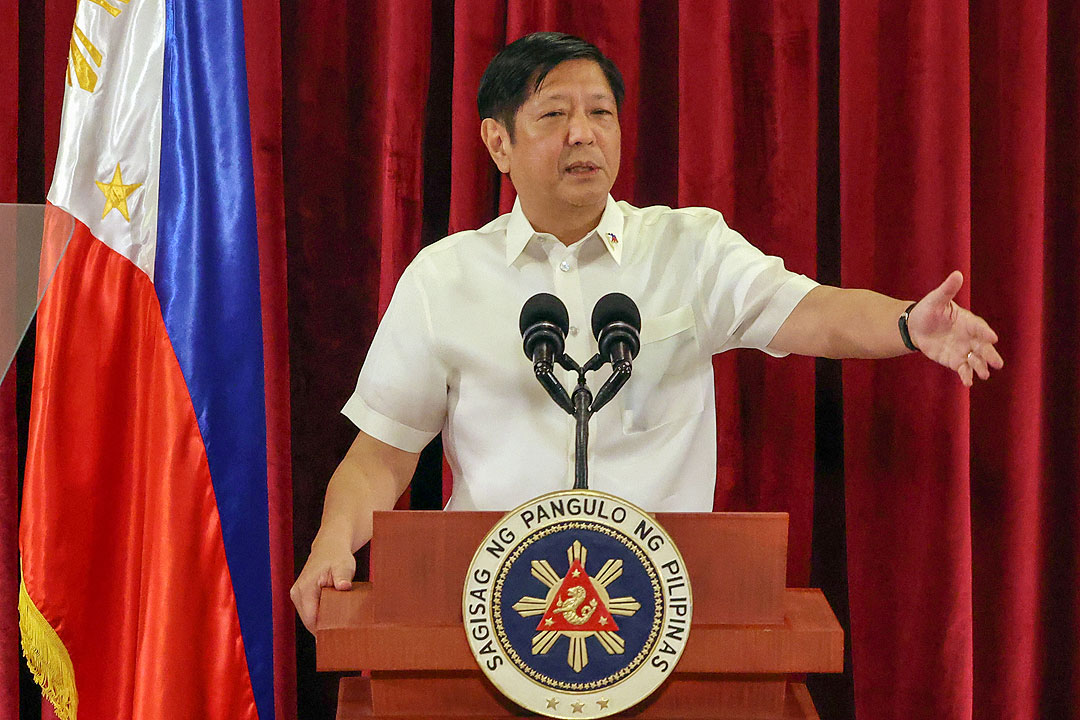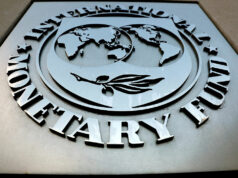Marcos worried about South China Sea tensions

PHILIPPINE President Ferdinand R. Marcos, Jr. on Thursday told his Southeast Asian counterparts he was deeply concerned over tensions in the South China Sea.
In his intervention at the retreat session of the 42nd Association of Southeast Asian Nations (ASEAN) Summit in Indonesia, Mr. Marcos cited “infringements on our sovereignty, sovereign rights and jurisdiction.”
The incidents have “palpable consequences” for the safety and welfare of Filipinos, “particularly our fisherfolk and coastal communities,” he said.
The three-day summit was held amid worsening regional tensions primarily caused by China’s increasing assertiveness in the South China Sea, which it claims almost in its entirety. Tensions have also increased between China and the US over self-ruled Taiwan.
On Monday, the day Mr. Marcos flew to Indonesia for the Southeast Asian gathering, the Gordian Knot Center for National Security Innovation said several Chinese maritime militia vessels accompanying a Chinese research ship were headed to Vietnam’s waters.
Earlier in the day, the center reported that those Chinese maritime militia vessels “appear to have interrupted their deployment to the Spratlys” and approached the path of seven ASEAN and Indian ships conducting a maritime exercise that sailed through the South China Sea.
Mr. Marcos, speaking to his fellow ASEAN leaders, urged countries to abide by the 1982 United Nations Convention on the Law of the Sea (UNCLOS), calling it the “Constitution of the oceans.”
“We will continue to urge all to abide by the 1982 UNCLOS, as the constitution of the oceans,” he said. “We must ensure that the South China Sea does not become a nexus for armed conflict.”
“We must avoid the ascendance of might and the aggressive revision of the international order. In an increasingly volatile world, we require constraints on power contained by the force of the rule of law,” he added.
Mr. Marcos noted that despite “continued attempts to deny and obstruct our ability to exercise our sovereign rights in our exclusive economic zone,” the Philippines will remain firm in upholding and protecting its entitlements under UNCLOS.
The Philippines is committed to the full and effective implementation of the Declaration of Code of Conduct in the South China Sea, a 2002 document signed by China and ASEAN members reaffirming freedom of navigation and overflight, peaceful settlement of disputes, and self-restraint in the waterway.
In the 2002 document, the parties agreed that the adoption of a code of conduct in the South China Sea would further promote peace and stability in the region.
Mr. Marcos called for an early conclusion of the code of conduct, which dates back to 1992, when ASEAN leaders signed a declaration that emphasized the “necessity to resolve all sovereignty and jurisdictional issues pertaining to the South China Sea by peaceful means, without resort to force.”
They aimed to establish a code of international conduct over the waterway that they said should be based on the “principles contained in the Treaty of Amity and Cooperation in Southeast Asia.”
Mr. Marcos said the rule-based regional architecture should be underpinned by the centrality of ASEAN “towards inclusive engagement in the Indo-Pacific region.”
Meanwhile, the Philippine leader reiterated his call for the immediate end of violence in Myanmar, calling for the enforcement of a five-point consensus issued in 2021.
The consensus called for an immediate end to violence in Myanmar; a dialogue among all involved parties; the appointment of a special envoy; humanitarian assistance from ASEAN; and a visit to the country by a special envoy.
“We continue to call on Myanmar to abide by and implement the Five-Point Consensus, and for our external partners to complement ASEAN’s efforts in the context of the Five-Point Consensus,” Mr. Marcos said.
He also expressed concern over tensions in the Korean Peninsula, calling for “denuclearization” of the area.
Mr. Marcos also sought a peaceful resolution of the conflict between Russia and Ukraine. — Kyle Aristophere T. Atienza



